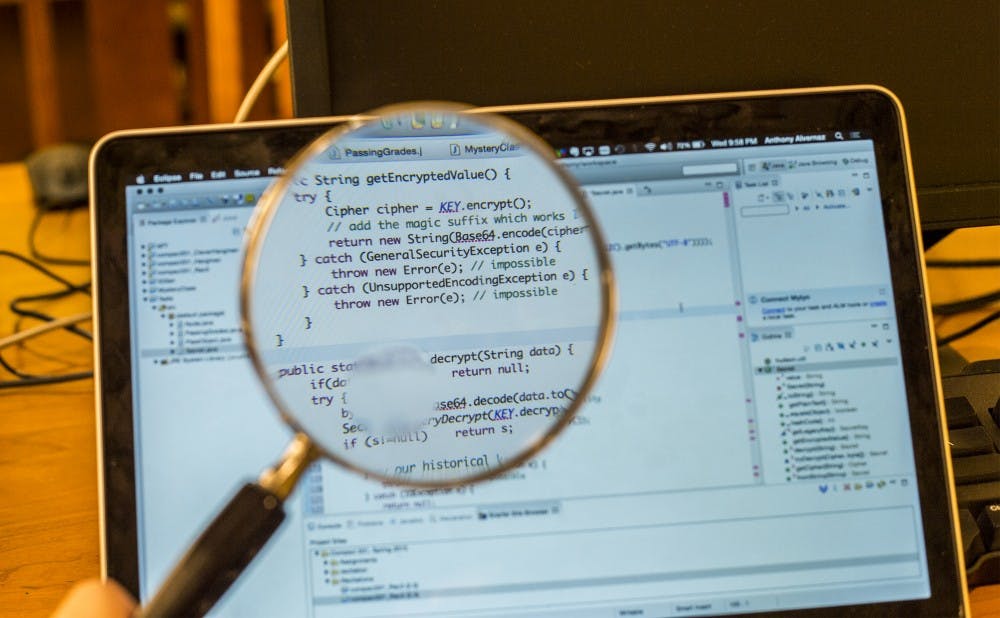The computer science department is developing new strategies to combat issues of cheating following the academic dishonesty investigation that began in November.
Although the Office of Student Conduct did not officially announce that the investigation has closed, the computer science department sent out official correspondences regarding the investigation to students enrolled in Computer Science 201: Data Structures and Algorithm for the Spring and Fall 2014 semesters. The emails were officially issued in December. Different correspondences were sent out to students who turned themselves in, students who believed they did not violate academic integrity and students who cheated but did not come forward.
According to the correspondences, the University has made an exception to typical course grading and withdrawal policies for Computer Science 201 students, who were not referred to the Office of Student Conduct—excluding those who cheated but did not come forward.
“If you are not satisfied with your final grade, you may elect to retroactively withdraw from the course with a W designation,” reads the correspondence signed by Jeff Forbes, associate professor of the practice of computer science.
The department is working toward replacing some older assignments with new assignments, wrote Salman Azhar, visiting professor and current lecturer of Computer Science 201, in an email Wednesday.
“We are studying the organization of our help sessions to find ways to reduce student frustration and provide help to students more efficiently and effectively,” Azhar wrote.
In the email sent out to students who came forward about their academic dishonesty, the correspondence indicated that the investigation concluded that these students "did not violate the stringent standard of academic dishonesty that we applied in this case."
"We have determined that no action against you is warranted," the correspondence reads.
To prevent similar scenarios from happening in the future, the department is also taking steps to improve the efficiency of methods for detecting academic integrity violations.
In terms of communication with students, Azhar noted that the department is broadening their efforts to increase awareness of the importance of academic integrity and legitimate help resources.
“[In doing so], instructors can become aware of problems earlier,” Azhar wrote. “We are working more closely with TAs to give faculty a more timely, detailed and clearer picture of areas of concern.”
Owen Astrachan, director of undergraduate studies in the computer science department, said two professors from the department were involved in the investigation in cooperation with the Office of Student Conduct but was unable to reveal their names.
“They tried to keep it confidential between the Office [of Student Conduct] and the individual students," Astrachan said. "They are trying to keep it as clean and private as possible."
Stephen Bryan, director of the Office of Student Conduct, could not be reached for comment.
Ronald Parr, department chair of computer science, deferred all comment to Michael Schoenfeld, vice president of public affairs and government relations.
Sophomore Andrew Sun, who was enrolled in Computer Science 201 last semester, noted that some students did not take the academic integrity issue seriously from the beginning.
Get The Chronicle straight to your inbox
Sign up for our weekly newsletter. Cancel at any time.
“It's the whole, 'Oh they did it and got away with it, I can probably get away with it too’ [mindset]," Sun said. "Unfortunately, because Computer Science 201 is a project-based class, when deadlines creep up, normally really good students sometimes succumb to the pressure of being dishonest.”

